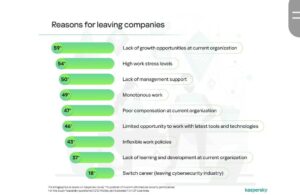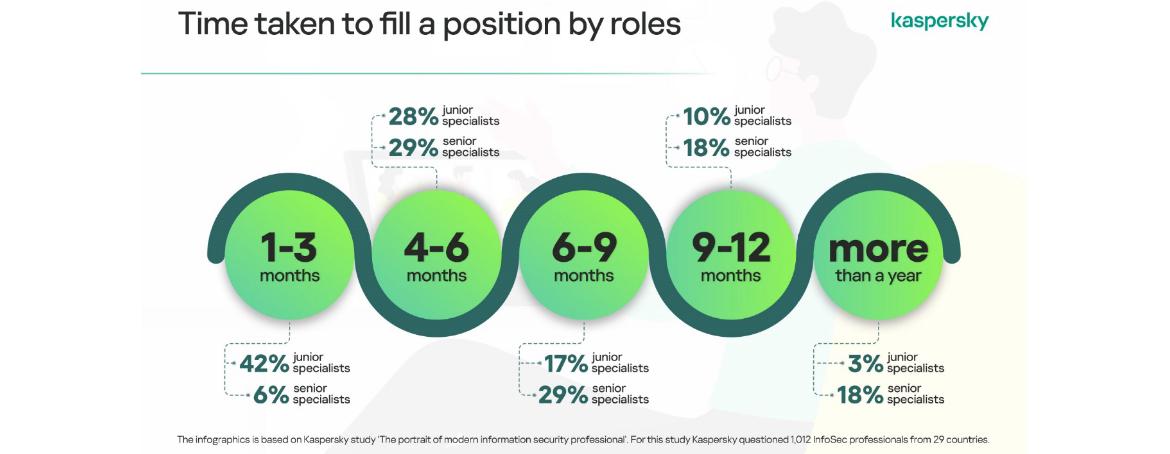Burnout among information security (InfoSec) professionals is a prevalent cause of staff turnover, as highlighted by a recent Kaspersky study that included participants from the META region (Saudi Arabia, UAE, Turkiye, South Africa, Nigeria and Egypt).
The growing complexity of the cyberthreat landscape and the persistent skills shortage exacerbate this issue.
Companies face significant challenges in recruiting and retaining experienced InfoSec professionals, primarily due to compensation issues, inadequate working conditions, lack of management support, and frustration over limited access to the latest technologies and tools.
The study reveals that 40% of companies’ cybersecurity teams are understaffed. Despite finding adequately qualified professionals, retention remains difficult, particularly for mid- to senior-level positions. Experienced professionals are challenging to find, recruit, and retain due to high demand and limited supply.
Recruitment challenges and timeframes
The demand for experienced cybersecurity experts far outpaces the supply, leading to prolonged recruitment periods and high turnover rates.
Junior cybersecurity staff positions are typically filled within six months (70%), while only 3% of roles take more than a year to fill. In contrast, staffing senior positions is much harder, with more than half of companies (58%) taking between four and nine months to find suitable candidates, and 36%, nine months or more. Only 6% of roles are filled in one to three months.
Tenure correlated with expertise
There is a strong correlation between the level of expertise and tenure. Senior InfoSec professionals tend to stay longer in their roles, with 49% remaining in top-level positions once achieved. Conversely, junior employees have a higher turnover rate, with most staying three to four years and only a small fraction (3%) remaining beyond five years.
Resignation reasons
Key factors contributing to InfoSec professionals leaving their positions include personal (human) reasons such as compensation issues, inadequate working conditions, and lack of management support. On the expert level, professionals often cite the need for continuous skills development and frustration with not having opportunities to work with the latest technologies and tools.
Professional dissatisfaction is the leading cause of resignations, with lack of growth opportunities being the primary reason (59%). Lack of management support and monotonous work are also significant factors, causing 50% and 49% of professionals to leave, respectively. High stress levels and inflexible working policies further contribute to the turnover.



